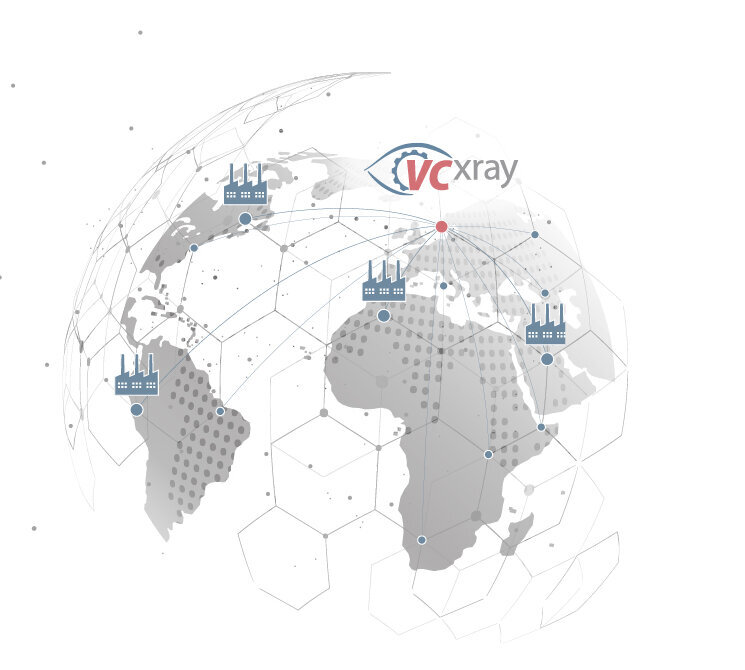
X-ray inspection systems for science and education
Materials testing is highly relevant in science and education and is seeing some significant trends. It is critical to the development of new materials, quality control in industry, and ensuring safety and reliability in various industries. Current trends include research into new classes of materials for lightweight construction, non-invasive testing methods, integration of AI and machine learning, green manufacturing, and additive manufacturing (AM). Materials testing is a key component in creating innovative materials and meeting the challenges of the modern world.
The use of industrial computed tomography (CT) in education, for example in universities, offers numerous opportunities. By examining materials and objects non-invasively at macroscopic and microscopic levels, students in materials science, engineering, archaeology, geology, biology, medicine, art, and culture can gain detailed insights. The technology enhances understanding of complex relationships, provides hands-on experience, and better prepares students for the modern job market.
Materials testing plays a crucial role in education and science at universities. It serves as a teaching tool and laboratory practicals for students in various degree programs, enabling them to apply theoretical concepts in practice. It also supports research and development of new materials, quality assurance and reliability of materials, and structural analysis. Materials testing also promotes interdisciplinary research projects and contributes to solving societal challenges. Overall, it strengthens materials science and engineering and qualifies the next generation of professionals in the field.
X-ray technology and CT (computed tomography) play an important role in education and science at universities. They are used in a variety of disciplines and research areas to study the structure, composition, and properties of materials and objects.
The use of X-ray and CT in education and science at universities empowers students and researchers to investigate complex issues, develop innovative solutions, and gain a better understanding of the world of matter. The technologies help drive scientific discovery and educate the next generation of experts.
The use of X-ray and CT technology in universities presents several challenges. These include potentially high costs to acquire and operate the equipment, the need for expert personnel, radiation safety measures, maintenance, and interdisciplinary collaboration. Nevertheless, these technologies offer great opportunities for research and education if the challenges are addressed appropriately.
University requirements for quality control and materials science systems vary widely and can be broadly divided into three categories:
VCxray offers a comprehensive portfolio of solutions for use in the arts and culture sector. This includes portable devices for use in the field - for example in archaeological excavations, robust 2D X-ray systems for demanding environments, and high-end Computed Tomography systems. From small benchtop systems for sample analysis to large-scale MeV systems capable of radiographing entire statues, there is a solution for every application and budget. Another highlight is small benchtop units as an introduction to CT for universities in teaching.
If only single analyses are required and the investment in an own device is not justified, VCxray also offers testing services in several laboratory locations. There, our experienced X-ray experts take care of component handling, image acquisition, evaluation, and interpretation of results.
Selecting the right system can be complex, and a good decision must weigh many parameters such as size, speed, cost, etc. Contact our product specialists for further advice.
Contact us today
Improve the quality and safety of your components with our state-of-the-art X-ray systems and CT systems. Contact us today to learn more about our material inspection solutions. Our team is always available to answer your questions and develop a customized solution for your needs.

With our Service centers and Hubs worldwide,
we will complete your staff with maximum
efficiency in your specified time frame and
without interrupting your operations.
No matter where you are, we are never far away.
Our knowledge and experience
maximize your company‘s profits.